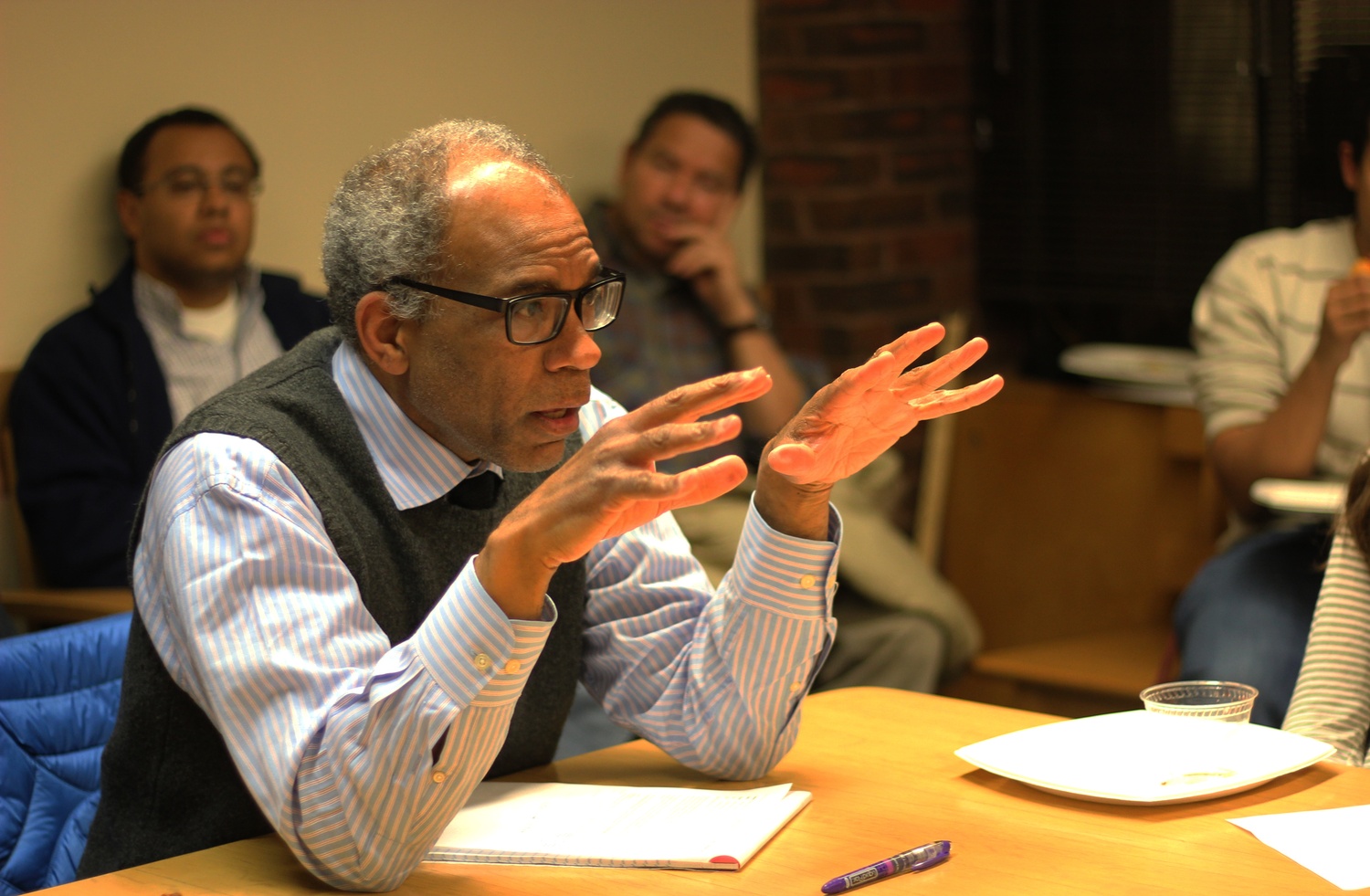
News
Harvard Grad Union Agrees To Bargain Without Ground Rules

News
Harvard Chabad Petitions to Change City Zoning Laws

News
Kestenbaum Files Opposition to Harvard’s Request for Documents

News
Harvard Agrees to a 1-Year $6 Million PILOT Agreement With the City of Cambridge

News
HUA Election Will Feature No Referenda or Survey Questions
HLS Professor Randall Kennedy Defends Harvard’s Free Speech Culture at Debate

Harvard Law School Professor Randall L. Kennedy defended Harvard’s free speech culture but criticized its new policy of refraining to comment on controversial issues during a debate over free speech and protests with George Washington University Law Professor Jonathan Turley at HLS Thursday.
During the debate, which was sponsored by the conservative nonprofit the Steamboat Institute and hosted by the Harvard Federalist Society, a conservative HLS student group, Kennedy and Turley sparred over whether Harvard encourages free speech and diverse viewpoints.
Turley accused Harvard of limiting conservative perspectives, citing a Crimson survey which found that less than 3 percent of faculty in the Faculty of Arts and Sciences identified as conservative.
“You virtually cleansed your faculty of Republicans and conservatives,” Turley said. “That doesn’t just happen, right? It doesn’t just happen that you have this effective ideological echo chamber at Harvard.”
But Kennedy argued that the political viewpoints of faculty are not a good measure of whether Harvard is achieving its central objectives.
“This is a institution that has a educational mission. It’s not a legislature, it’s not a jury, and the values that should matter are intellectual/scholarly values,” Kennedy said.
Still, Kennedy acknowledged that Harvard is unable to escape fraught political debates. In an interview after the debate, he criticized Harvard’s new institutional voice policy — under which the University will refrain from commenting on issues unrelated to its core functions — as an impossible effort to evade the political spotlight.
“I’m deeply skeptical,” Kennedy said. They want to — the people who are behind it — want to depoliticize things. They want to get the University out of politics. But I don’t think that can happen” he added.
During the debate, he said Harvard is the target of “a very powerful, and a very well organized campaign of vilification,” citing the Republican-led House investigation into Harvard’s handling of antisemitism on campus.
According to Kennedy, the investigation “is attempting to intimidate and harass this University and voters. It poses a danger to higher education.”
“I think that Harvard University should defend itself much more strenuously in terms of the assault that is being launched against it by the government,” Kennedy said.
A Harvard spokesperson declined to comment.
Kennedy also defended former President Claudine Gay’s testimony before Congress in December, calling it an example of Harvard’s commitment to free speech.
Gay, when asked by Rep. Elise M. Stefanik ’06 (R-N.Y.) whether calls for genocide against Jewish students would violate Harvard’s code of conduct, said that it depended on context. Though Gay’s answer was widely condemned by Harvard affiliates and politicians of both parties — leading in part to her resignation in January — Kennedy said she did the right thing.
“She stood up on that occasion, she stood for freedom of expression under very difficult circumstances,” Kennedy said.
Want to keep up with breaking news? Subscribe to our email newsletter.
From Our Advertisers

Over 300+ courses at prestigious colleges and universities in the US and UK are at your disposal.

With innovative financial tools combined with financial education, Collegiate empowers students to take control of their finances and build confidence in their money management skills.

Serve as a proctor for Harvard Summer School (HSS) students, either in the Secondary School Program (SSP), General Program (GP), or Pre-College Program.

With an increasingly competitive Law School admissions process, it's important to understand what makes an applicant stand out.

Welcome to your one-stop gifting destination for men and women—it's like your neighborhood holiday shop, but way cooler.

Admit Expert is a premium MBA admissions consulting company, helping candidates secure admission to top B-schools across the globe with significant scholarships.
